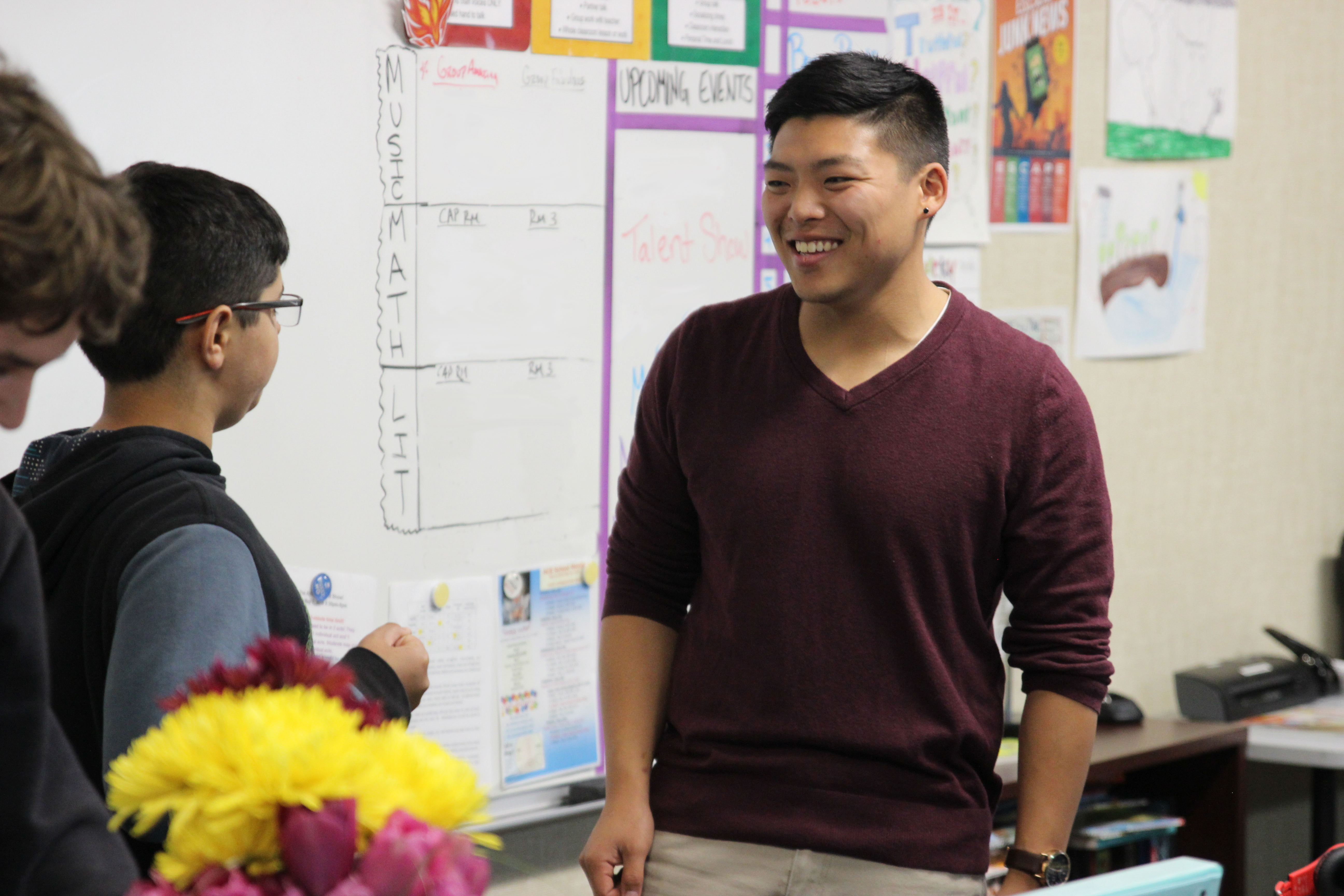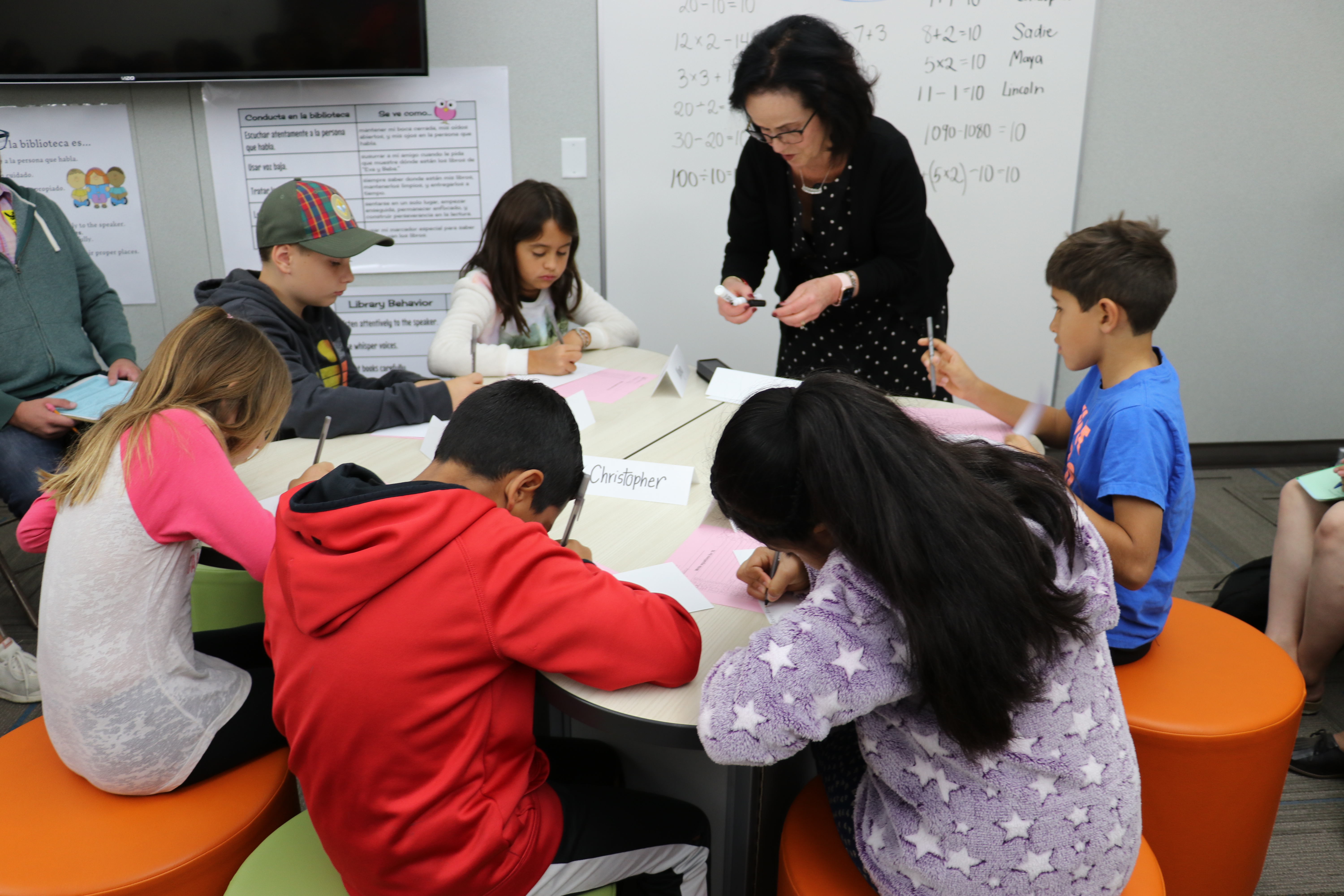Sonoma State University’s School of Education offers a Master of Arts in Education degree with three distinct concentrations. Each of these concentrations reflects the philosophy, purpose, and goals of the School of Education. In our M.A. program, students critically examine educational theories and research through a variety of empirical and theoretical lenses with a focus on social justice to develop an informed educational vision and innovative pedagogy in a variety of educational settings. Students have the opportunity to collaborate with faculty and colleagues to examine and influence current educational practice through research, project development, and advocacy. We expect graduates to emerge from their work at Sonoma State University as leaders in their field and agents of change.
Throughout their years in an M.A. program, students are required each semester to meet with the graduate advisor in their area of concentration to plan collaboratively their progress in the M.A. program. Students may also confer with other graduate program faculty and the Graduate Studies Coordinator for advice and guidance in their coursework and professional development. Students must maintain a 3.00 grade point average in all coursework in the approved M.A. program.
For more information about the M.A. in education, read our M.A. handbook.
Program Learning Outcomes
- Students can articulate how the MA coursework has contributed to their personal, intellectual, and professional growth in relationship to the social justice framework of the School of Education.
- Students demonstrate how their breadth and depth of knowledge about advancing social justice in schools and communities has changed in regard to reading and applying educational research.
- Students demonstrate their ability to critically analyze multiple historical, philosophical and theoretical perspectives in relationship to issues of educational and social inequities.
- Students can explain how the MA program has contributed to their understanding of equity and access for all learners.
- Students can explain how the MA program has contributed to their ability to be an advocate for social justice in education.
- Students demonstrate the ability to write at a graduate level.
- Students complete a culminating activity in which they cogently demonstrate: their ability to draw from appropriate and adequate peer-reviewed research connections between their project and their work as an educator the significance of the project to the local educational context and social justice.
MA in Education Core Coursework
Regardless of the concentration candidates select, all students in the MA in Education program complete the same core courses.
|
Candidates admitted before Fall 2022 |
Candidates admitted Fall 2022 or later 18 units |
|
EDUC or EDMS 570 The Reflective Educator EDUC or EDSP 571 Research Paradigms in Education EDUC 598 Thesis Development (thesis students only) |
EDMS 570 The Reflective Educator EDSP 571 Research Paradigms |
| Culminating Project MA candidates complete a culminating project in the form of either a thesis or a synthesis project. Please discuss your options with your advisor. |
|
 |
Curriculum, Teaching & Learning (CTL) The CTL program is intended for individuals who are interested in curriculum development and implementation in PK-12 settings and in other settings such as community colleges, workplaces, and community based educational programs. |
 |
Reading & Language The Reading and Language concentration is designed to prepare teachers for specialized teaching of reading and language arts and for curriculum and instructional leadership in the field of language and literacy. |
 |
Special Education The special Education program builds on a teaching credential to provide advanced academic study for persons working with or on behalf of individuals with disabilities |

